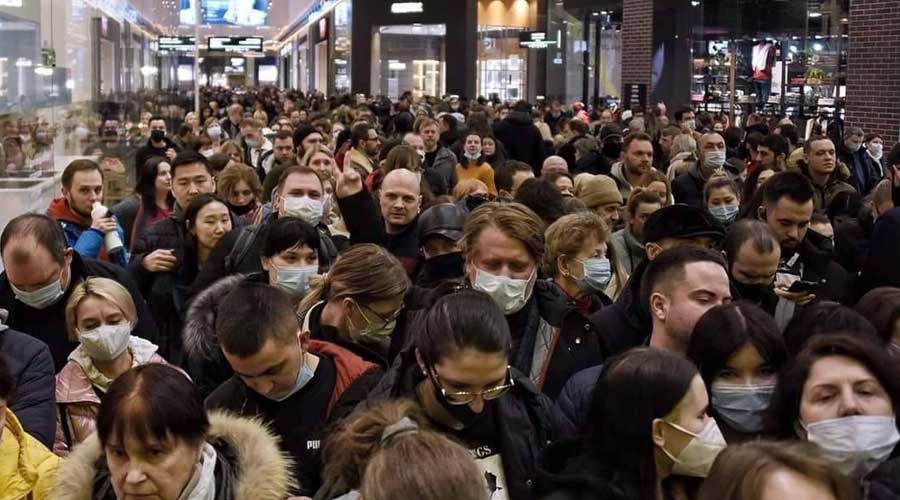Companies and investors across the world faced Russian dilemmas on Friday as they weighed up an offer from Moscow to fast-track their exits from the country and allow them to hand over holdings to local managers until they return.
The options offered by first deputy prime minister Andrei Belousov came one week since Russia’s invasion of Ukraine and a day after French bank Societe Generale warned that it could be stripped of its Russian operations, which sent a chill through companies seeking to stay put in the country.
Belousov outlined three alternatives for foreign firms.
“The company continues to work fully in Russia,” he said in a statement.
“Foreign shareholders transfer their share to be managed by Russian partners and can return to the market later,” he added. And: “The company permanently terminates operations in Russia, closes production and dismisses employees.”
No route comes without risks. Those staying on could face a backlash in Western markets where the public have rallied to Ukraine’s cause, those transferring shares could be handing over the keys with few guarantees, while those quitting may face a big loss at best, or might have to sell for a nominal sum.
Russia’s invasion has prompted the United States and Europe to impose sweeping sanctions, affecting everything from global payments systems to a range of high-tech products, which make doing business in Russia increasingly complex and precarious.
For ordinary Russians, it means deep economic pain.
Some multinationals such as energy majors BP and Shell have already said they are quitting, while others have held off signing off from Russia for now.
TotalEnergies has said it would stay but would not invest more.
IKEA announced plans to close stores on Thursday but said it would pay its 15,000 Russian staff for at least three months.
Italian tyre maker Pirelli said on Friday it was constantly monitoring developments through a specially constituted “crisis committee”, adding it did not expect to halt either of its two Russian plants.
But there are no easy fixes even for those looking for the exit, when there are limited trading counterparties.
For those seeking the door, the Russian first deputy prime minister said a fast-track bankruptcy plan “will support the employment and social well-being of citizens so that bona fide entrepreneurs can ensure the effective functioning of business”.
Norway’s sovereign wealth fund, the world’s largest, said on Thursday it has written off the value of the roughly $3 billion in assets it held in Russia.
LSE crackdown
Russia’s global financial isolation intensified on Friday as the London Stock Exchange (LSE) suspended trading in its last Russian securities and some insurers withdrew their cover from UK exporters over Moscow’s invasion of Ukraine.
Banks, investors and insurers have in recent days ratcheted up that pressure by exiting investments in Russia and halting the provision of their services.
The LSE said it had suspended global depositary receipts (GDRs), which represent shares in a foreign company, for eight Russian companies, including Magnit and Sistema, after freezing trading in 28 firms on Thursday.
In another turning of the screws on Moscow, trade credit insurers, who provide a financial safety net for exporters and importers, are pulling back from covering businesses exporting to Ukraine and Russia given the risks of sanctions, high claims or missed payments, industry sources said.
The move in the nearly $3 trillion global market will heap further pressure on Russia’s already teetering economy.
“In this last week, trade credit insurers will have paused supporting new risk for Ukraine and Russia,” said Nick Robson, global leader for credit specialties at insurance broker Marsh.










